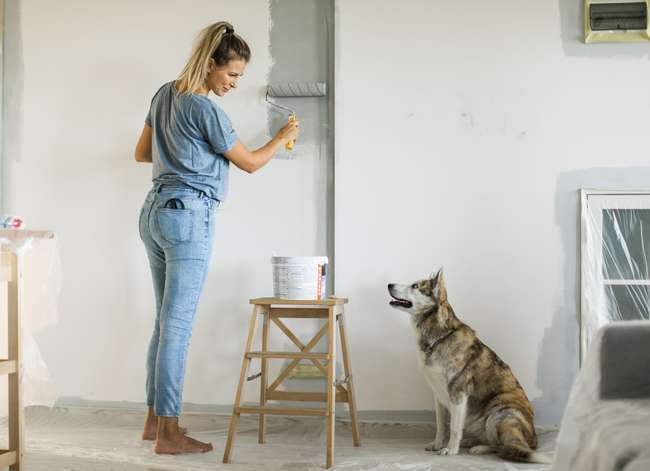We may earn revenue from the products available on this page and participate in affiliate programs. Learn More ›
Plan for Perfection
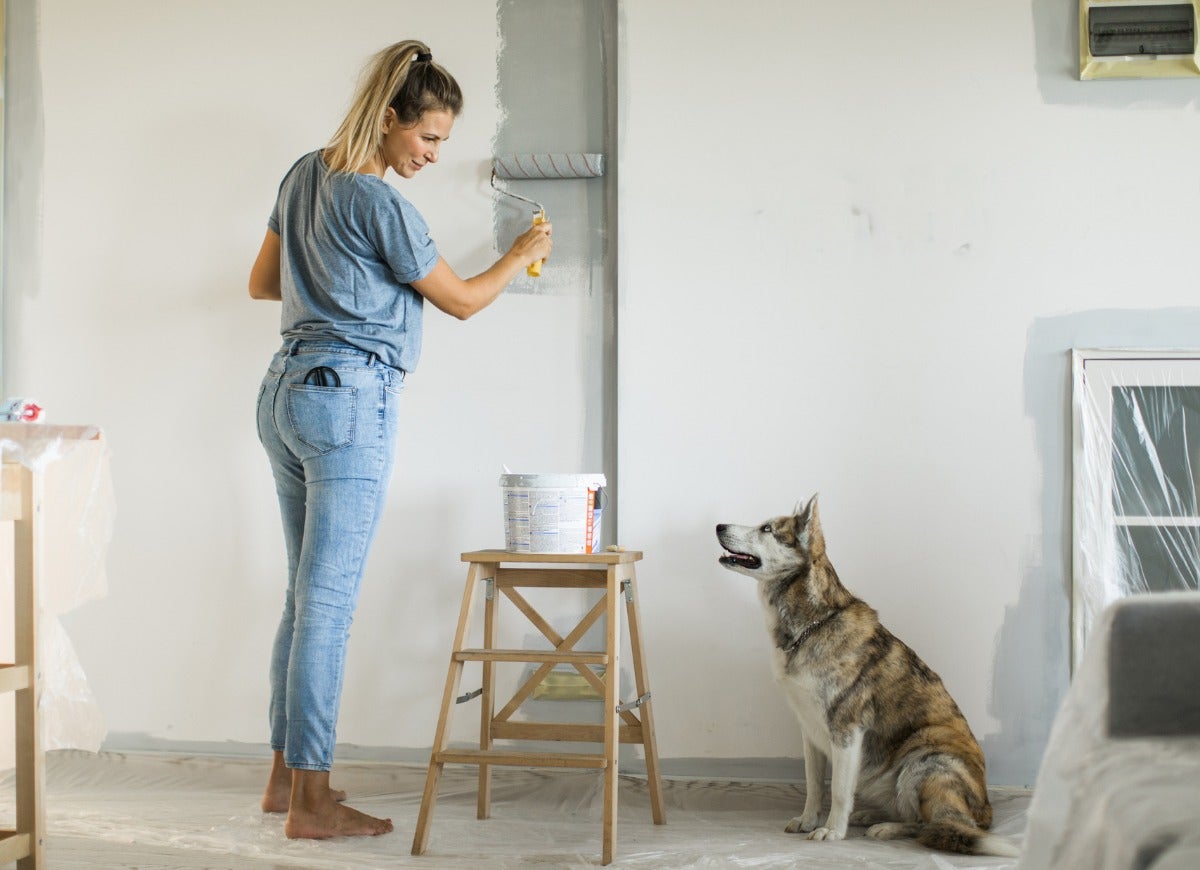
Painting a room is a job most DIYers can tackle by themselves. Getting professional-looking results, however, requires planning and preparation. It’s worth spending a little extra time to do the job right.
There are plenty of tips and tricks you can employ to make the work of painting go more quickly and smoothly. Here are a few of our favorites that will get you out of your painting clothes and into a freshly painted room that’s ready to enjoy.
Wear Your Masking Tape

Prepping to paint may seem like a hassle, but it’s worth the effort. Save time and free up your hands by wearing your painter’s tape. Either hang it around your belt or belt loop with a length of twine or a carabiner, or cut the toe off an old sock and place that on your wrist before slipping on your tape roll as a bracelet.
Get the 3M Scotch-Blue Multi-Surface Painter’s Tape on Amazon for $11.99
Use Quick-Drying Spackle
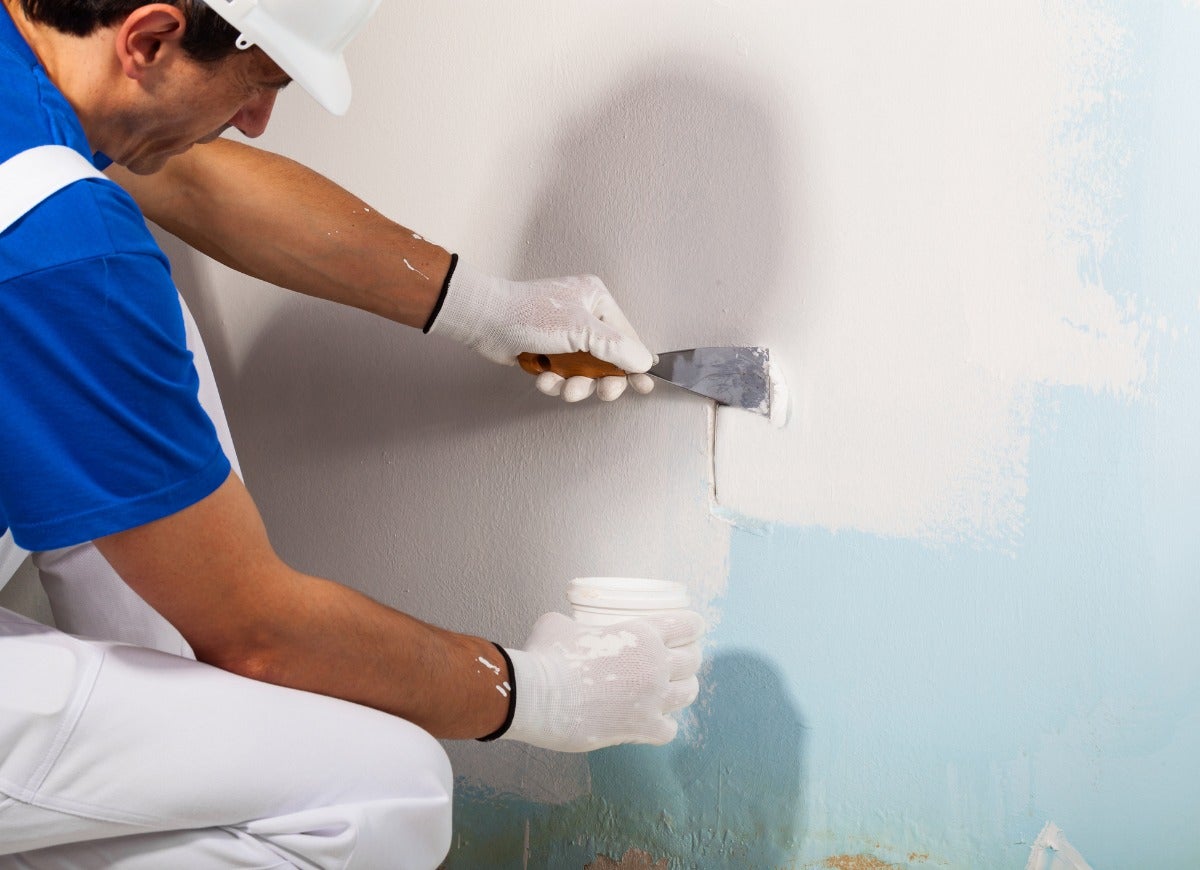
Use quick-drying spackle for all the small cracks and nail holes in your walls. Some spackles, like DAP’s DryDex Dry Time Indicator Spackling, change color as soon as they are dry, so there’s no guesswork about when you can sand and move on to painting.
Get the DAP DryDex Dry Time Indicator Spackling on Amazon for $15.78
RELATED:
How to Patch Plaster Walls
Use Kraft Paper Instead of Drop Cloths
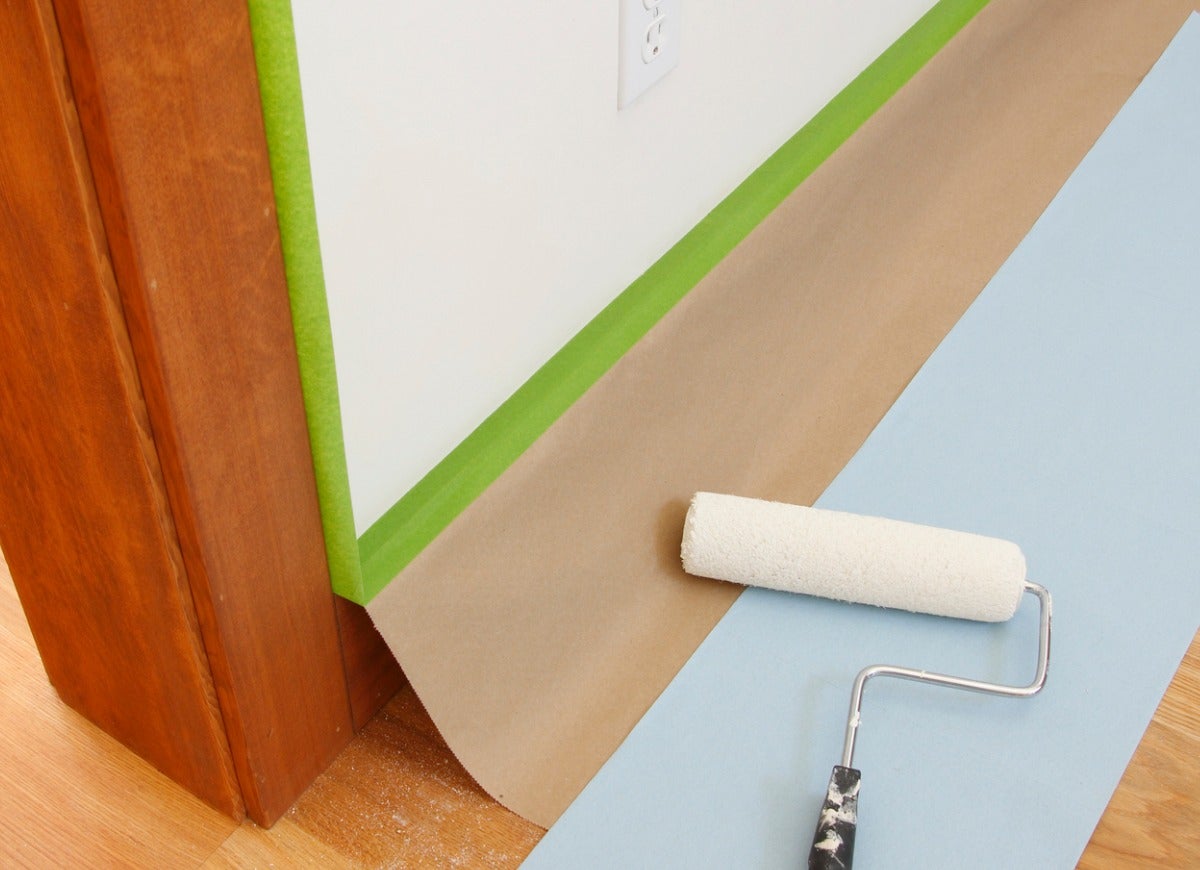
Drop cloths are notoriously slippery on hardwood floors and can bunch up under ladders. Make protecting your floors easier by purchasing a roll of kraft paper, also called builder’s paper by some, to cover all the edges of the room. The whole painting job will be safer and faster, and cleanup will be a snap.
Get the Eco Kraft Biodegradable Recycled Wrapping Paper Roll on Amazon for $25.79
Press and Seal Protection

Plastic wrap makes an excellent self-sticking masking material for awkward objects like toilet tanks, vanities, and even light fixtures. And unlike a drop cloth, it stays put, protecting your fixtures and appliances from paint splatters.
Get the Glad Press’n Seal Plastic Wrap on Amazon for $7.99
RELATED:
How to Remove Paint From Everything
Use a Paint Pad for Trimming and Reaching Awkward Places
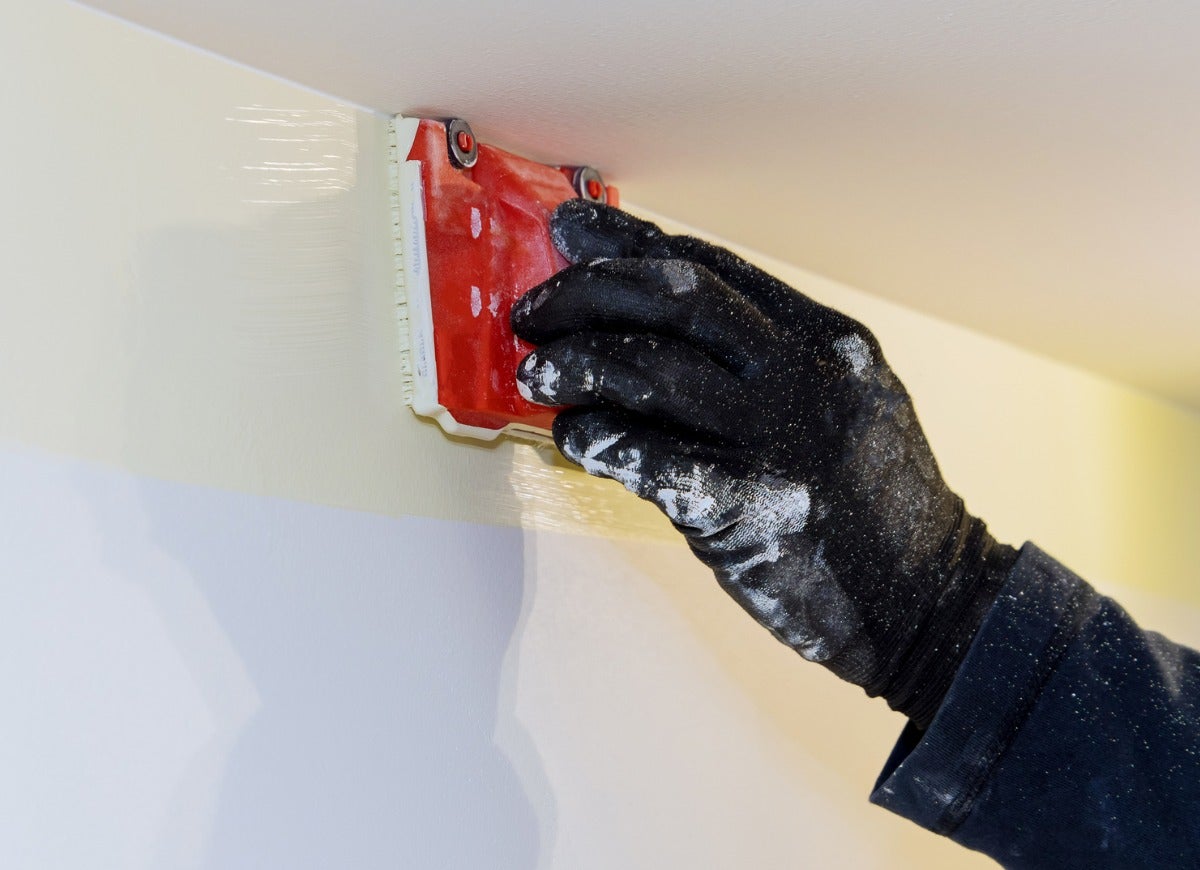
A paint pad edger like the Shur-Line Edger Plus can make cutting in around windows and molding a quicker, neater job, allowing you to eliminate some masking. You can also remove a paint pad head from its applicator and hot glue it to a paint stick to create a super-flat painting tool that will reach tight spaces, like behind a toilet tank.
Line Your Equipment
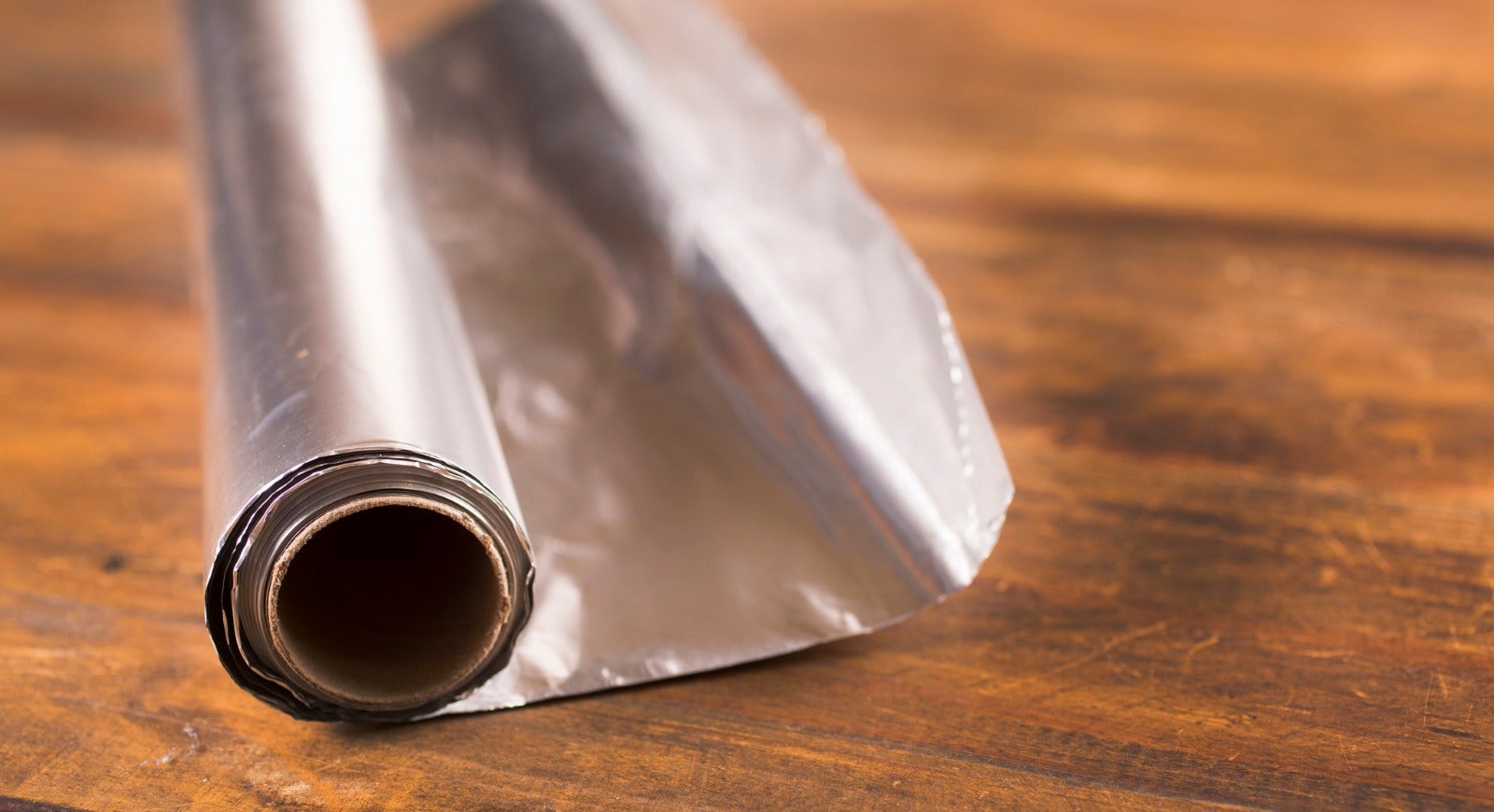
Line your paint trays with aluminum foil, and cleanup becomes a whole lot easier. Just let the paint dry, and pull the foil out. If you choose to use a bucket, line it with plastic or a clean garbage bag and tape it around the outside edge of the bucket. Lift and remove it, and the inside is still clean like nothing ever happened.
Get the Reynolds Wrap Heavy Duty Aluminum Foil on Amazon for $10.59
Use a Bucket, Not a Tray
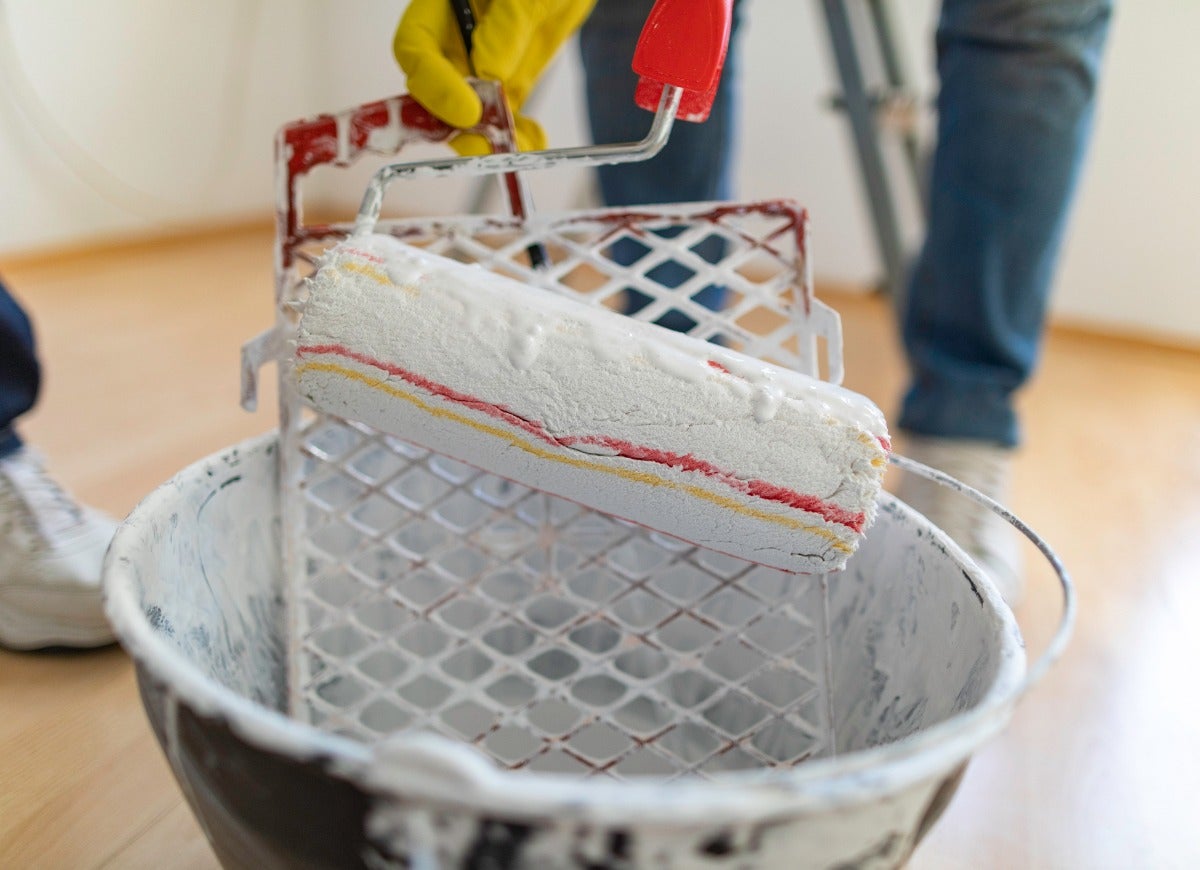
For larger jobs, use a 5-gallon bucket with a paint screen instead of a traditional paint tray. This will allow you to load your roller more quickly, and you won’t need to stop and refill a tray while you’re in the middle of painting a wall.
Get the Wooster Brush Acme Deluxe Five Gallon Grid on Amazon for $3.17
Extend Your Roller’s Reach
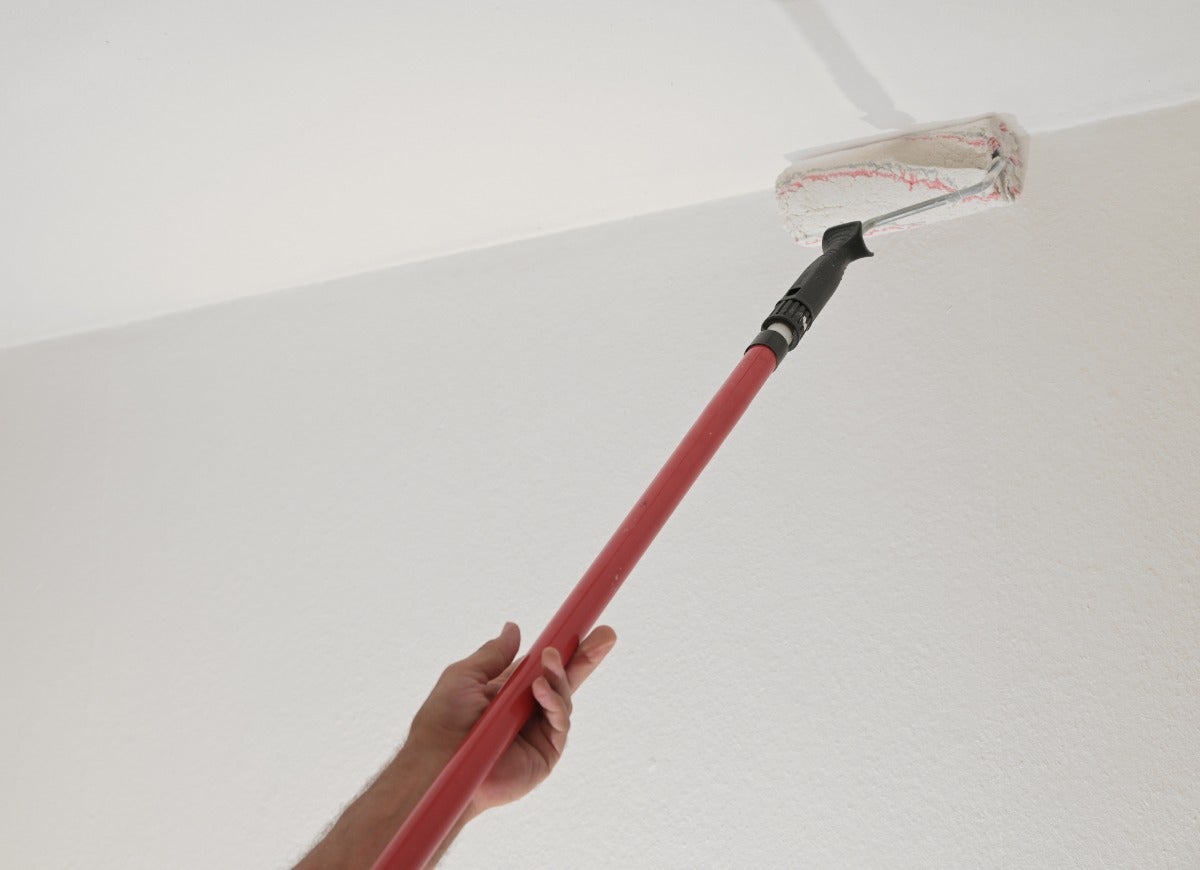
You can avoid a lot of trips up and down a ladder if you add an extension handle to your paint roller. An extension pole that offers custom telescoping lengths like the Bates Extension Pole will save even more time and possible strain on your back.
Wrap Your Tools While on a Break
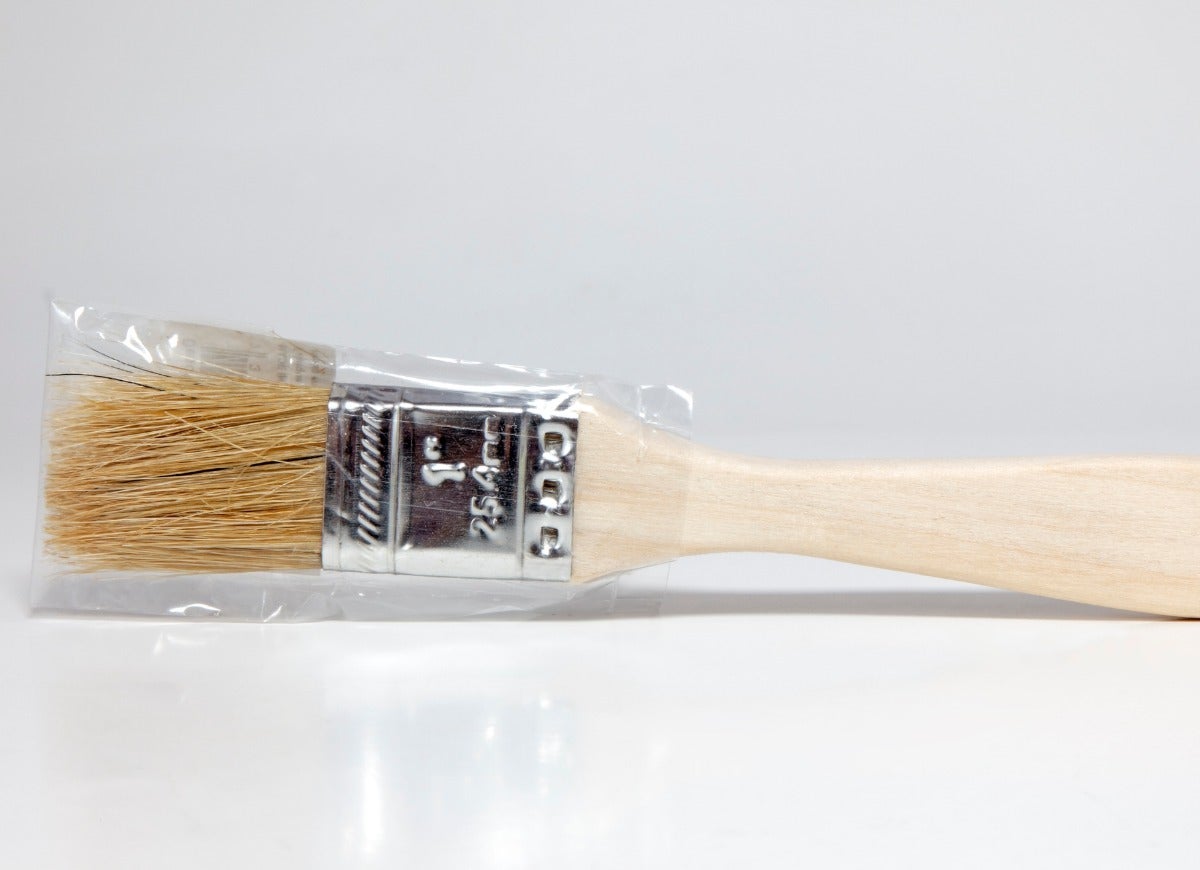
If you need to take a short break before the painting project is done, wrap your trays, rollers, and brushes in plastic wrap or plastic bags. They’ll stay wet and be protected from dust and other particles in the air. To be more eco-friendly, look for compostable bags. If you’re going to leave the tools out for more than an hour or so, it’s best to clean them thoroughly beforehand.
Get the Upper Midland Products Compostable Bags (200-pack) on Amazon for $30.57
Handy Tools for Cleanup
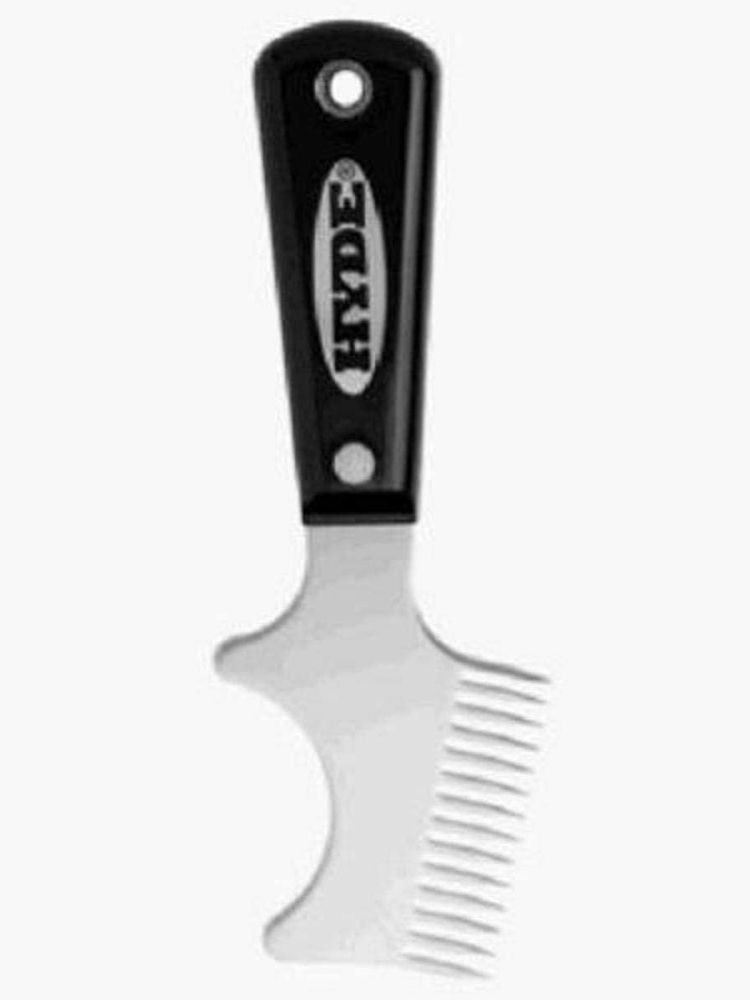
It’s worth investing in some tools for cleaning up. A painter’s comb will help you clean your brushes more quickly and completely so that they’ll be ready for your next paint job. A comb that comes with a built-in roller cleaner like the Hyde Tools brush comb will also quickly clean paint rollers so you can use them again.
Go Round for Cutting In
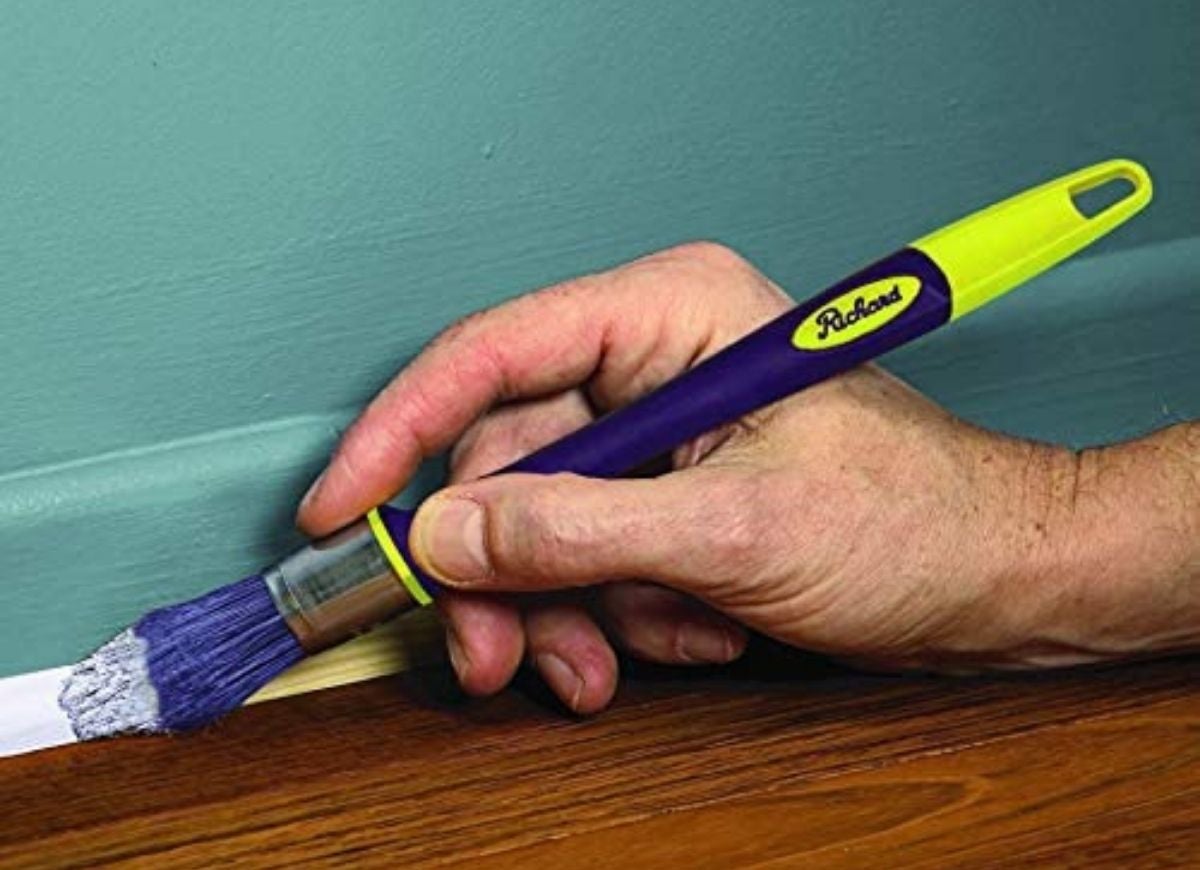
If cutting in trim with an angled brush is a challenge, try using a round-tipped brush for that kind of detailed paint work. The round tip can sneak into tight spots and allow a little more control over the width of the paint applied to a surface.
Smooth Out the Surface
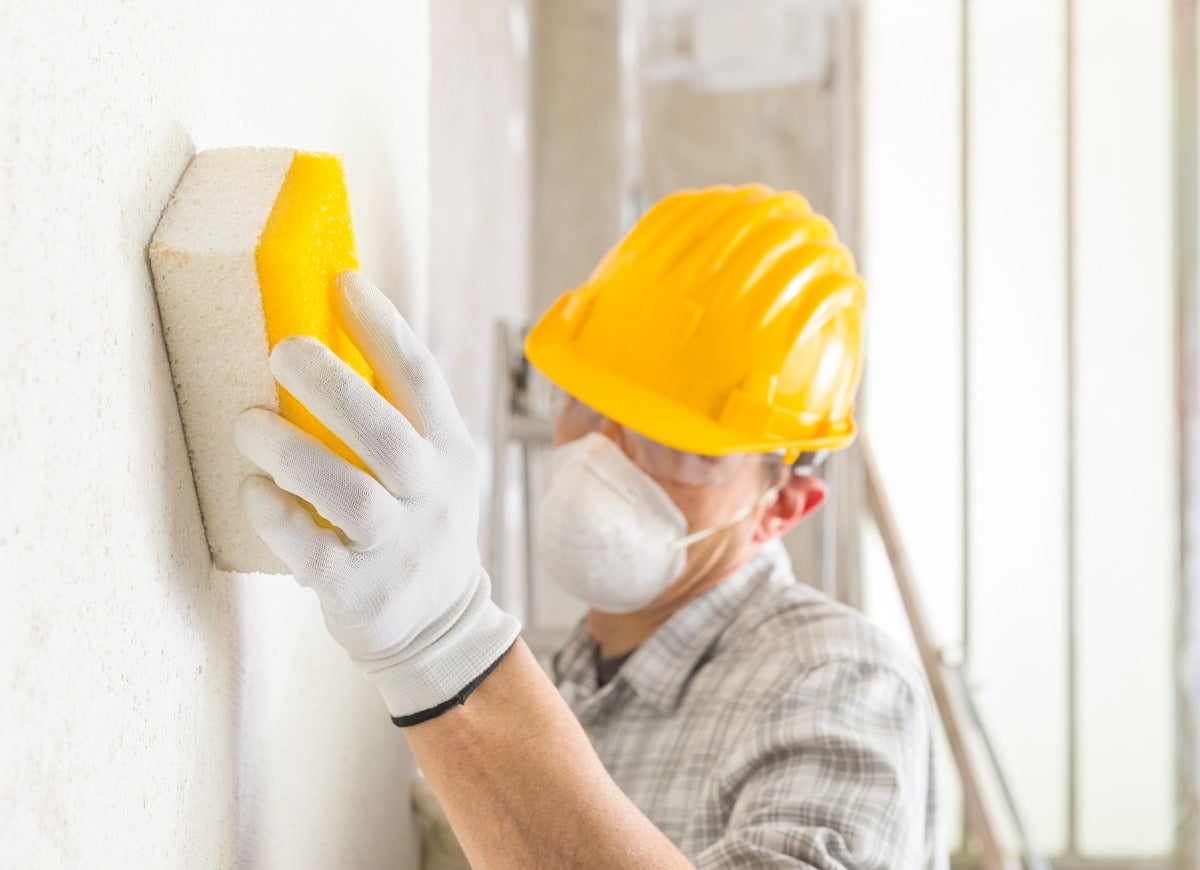
When a surface is showing little imperfections, take the time to smooth it out before painting. While sandpaper can work, using it to achieve a smooth surface is more difficult. Make this job easier with a sanding sponge like the 3M Precision Sanding Sponge.
Get the 3M Pro Grade Precision Sanding Sponge (2-Pack) at The Home Depot for $9.47
Power Up Paint Stirring
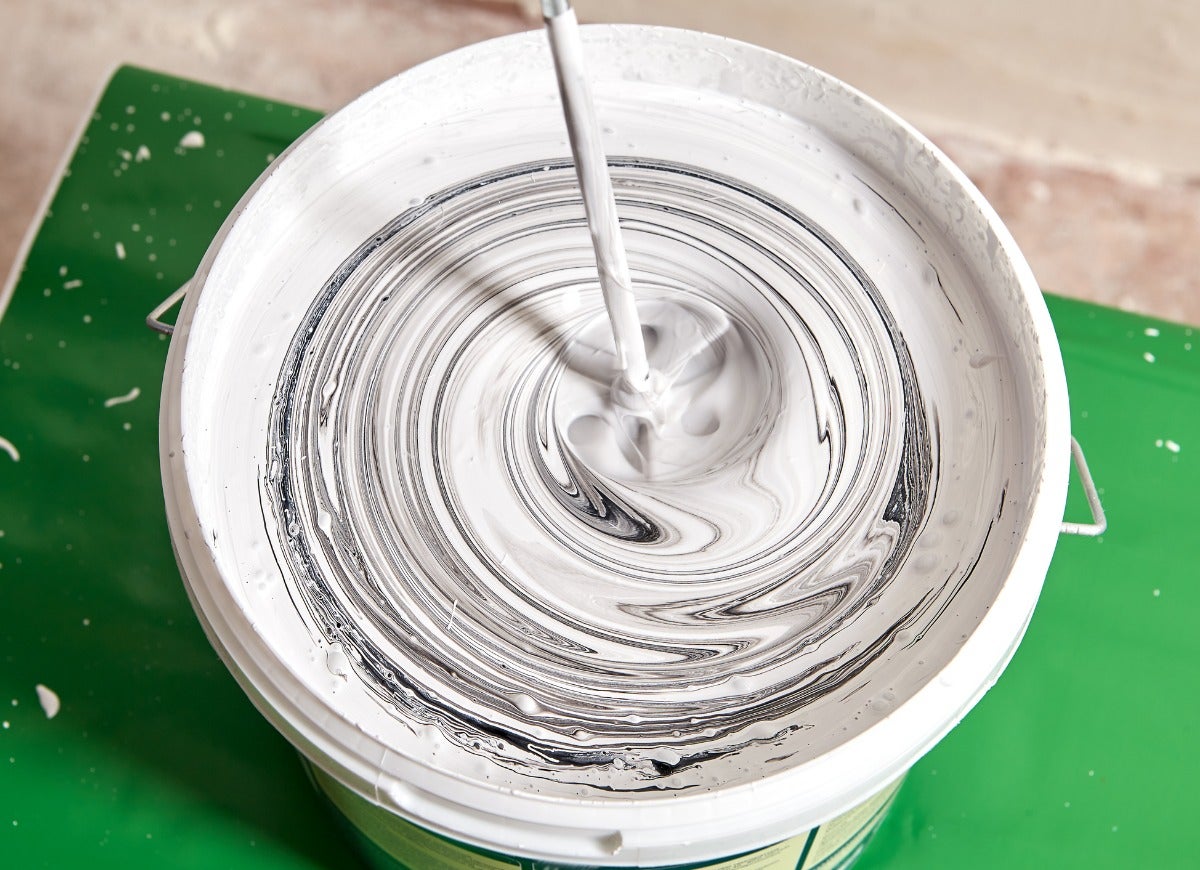
Paint that has been sitting for a while in the can needs to be stirred well before use. To make the job easier, there are power paint stirrers that can attach to a drill and mix up the paint in just a few seconds.
Get the Hyde Tools Stir Whip Paint Mixer on Amazon for $13.92
The prices in this article are accurate as of last update on December 13, 2021.

Everything You Need for a Lush and Healthy Lawn
Keeping your grass green and your plants thriving doesn’t just take a green thumb—it starts with the right tools and supplies.

